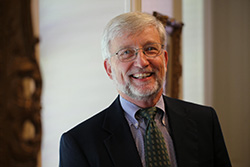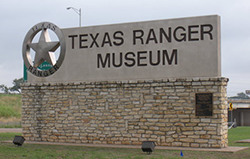Baylor creates governance reform task force; alumni urge leadership change
WACO—Baylor University’s board of regents formed a governance review task force to review board practices, procedures and selection processes—an announcement an organizer of Bears for Leadership Reform attributed to his group’s formation.
“This task force will be a part of an important governance review that has been done on a regular basis for the past several years,” Chairman Ron Murff said in an announcement posted online Nov. 9. “We want to ensure we continue to take positive steps in fulfilling our fiduciary responsibilities and in doing our best for Baylor.”
The regents’ governance and compensation committee at its most recent meeting recommended creation of the task force, the Baylor announcement said.
But former Gov. Mark White, a Baylor alumnus and board member of Bears for Leadership Reform, told a crowd at his organization’s first public gathering, Nov. 10, the Baylor announcement “would not have come out if we had not had this meeting.”
Baylor announced the task force formation on the eve of a meeting of Bears for Leadership Reform—a nonprofit group of alumni and donors who are demanding greater openness by the board of regents in the light of the Pepper Hamilton investigation into the university’s response to sexual violence.
Task force members announced
Jeffrey Chapman of Dallas, partner and co-chair of the Gibson Dunn law firm’s global mergers and acquisitions practice group, will serve as coordinator of the task force. John Olson, an expert in board governance and founding partner of Gibson Dunn’s Washington, D.C., office, will serve as a resource for the group.
Other task force members are Bob Beauchamp of Houston, chair and chief executive officer for BMC Software; Doug Bech of Houston, chief executive officer and founding owner of Raintree Resorts International; Jerry Clements of Austin, chair and managing partner of th Locke Lord law firm; Paul Foster of El Paso, founder and chair of Western Refining; and Larry Heard of Houston, president and chief executive officer of Transwestern.
 Baylor Interim President David Garland “This task force will work alongside the board’s governance and compensation committee that has already led the implementation of substantial changes,” Interim President David Garland stated.
Baylor Interim President David Garland “This task force will work alongside the board’s governance and compensation committee that has already led the implementation of substantial changes,” Interim President David Garland stated.
“These include the formation of an executive committee and drawing more distinct lines of reporting between the board and senior university leadership. Of particular note is the board’s decision to disband its athletics committee, a structural change that signals its intention that all areas of the university fully align with the university’s mission.”
Call for leadership change at board level
 The morning after Baylor announced formation of the task force, a crowd filled Knox Hall at the Texas Ranger Museum in Waco for an event launching Bears for Leadership Reform.
The morning after Baylor announced formation of the task force, a crowd filled Knox Hall at the Texas Ranger Museum in Waco for an event launching Bears for Leadership Reform.
Legendary Coach Grant Teaff, who led the Baylor Bears football program two decades, opened the meeting with a prayer.
“Our focus is leadership at the board level. … We need to change the culture by changing the leadership,” said John Eddie Williams of Houston, a member of the nonprofit corporation’s board of directors.
“We don’t need secrecy,” he said. “We can handle the truth.”
Need for transparency and accountability
Other participants also called for greater transparency and accountability by Baylor’s board of regents.
“Secrecy can destroy any family, even the Baylor family,” said Emily Tinsley, a former Baylor regent, who said the current board has governed the university “like it’s their own small, privately held company.’
“Rell” Tipton, a Houston corporate lawyer who was an offensive guard on the Baylor Bears when the team won the Southwest Conference championship in 1974, noted his respect for former teammates who serve on the board of regents.
“But when you look at the board as a group, the decision making hasn’t been good,” he said.
Determine the ‘real facts’
Drayton McLane, the Temple businessman and Baylor donor for whom the university’s $266 million football stadium is named, noted he is a former regent and regent emeritus but hasn’t attended meetings for “a couple of years.”
“We need to determine what the real facts are,” McLane said. “Were the right decisions made by the board? That’s the real issue.”
No sweeping NCAA sanctions
In another development related to Baylor and its sexual-assault scandal, The Wall Street Journal reported reported the NCAA will not impose broad sanctions on the university, comparable to the way it penalized Penn State following a child molestation case involving Jerry Sandusky, former offensive coordinator.
However, the NCAA may conduct a narrow investigation focused on whether Baylor athletes received preferential treatment through the university’s disciplinary process.